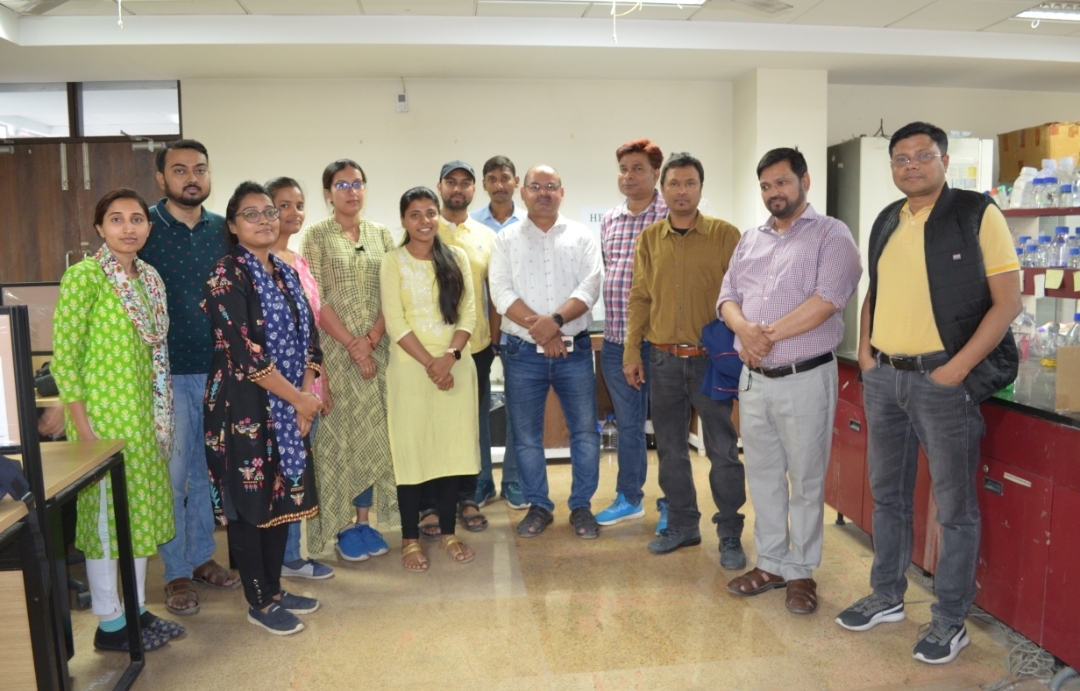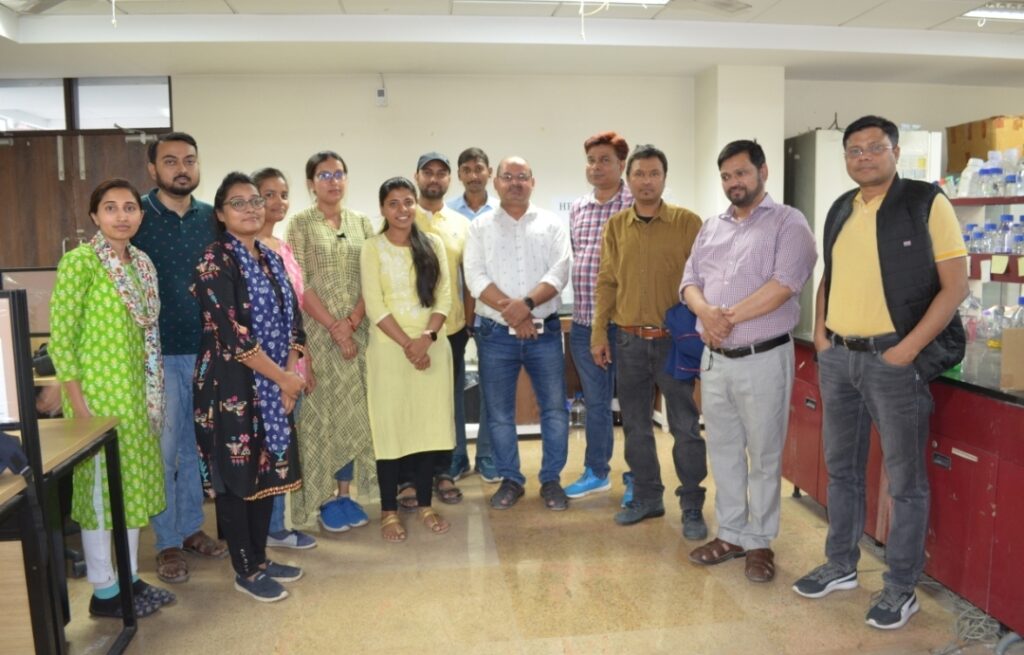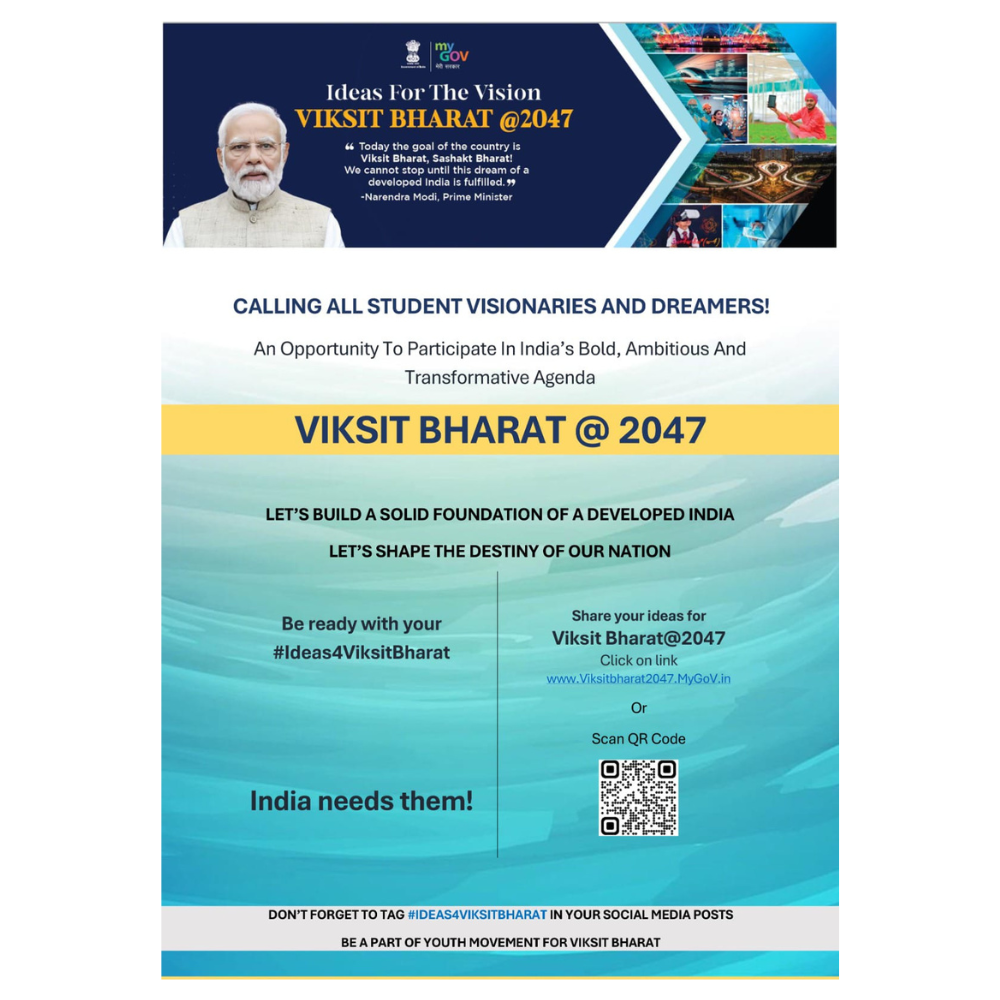Guest lecture by USA based scientist on Alzheimer’s Disease at Biotechnology Dept. of CUSB
- Posted by cusb
- Categories Design / Branding
- Date March 20, 2023

Dr. Saif Ahmad, a scientist in the Department of Translational Neuroscience, Barrow Neurological Institute, Phoenix, Arizona (USA) delivered a guest lecture at Central University of South Bihar (CUSB). The University Public Relation Officer (PRO) Md. Mudassir Alam said the lecture on topic ‘Complement C3a receptor: An important player in neurodegeneration/ neuroinflammation’ was organised by Dept. of Biotechnology of CUSB. The interactive session started with a formal introduction of Dr. Saif Ahmad to the attendees by Dr. Jawaid Ahsan, Asst. Prof.of Biotechnology. He informed the audience about Dr. Saif’s expertise includes molecular studies of neurodegenerative diseases like Alzheimer’s disease using cell lines and mouse models.
After the introduction, Prof. Durg Vijai Singh, HoD, Biotechnology felicitated Dr. Saif and welcomed him in presence of faculty members of the Dept. namely Prof. Rizwanul Haque, Prof. Rakesh Kumar, Dr. Jawaid Ahsan, Dr. Krishna Prakash along with many other faculty members, research scholars and students from other departments. Dr. Arshad Jamal Khan, who owns a Vaccine production company in Lucknow was also present during the lecture as the guest of honour.

While delivering the lecture, Dr. Saif explained about his work which was specifically focused on complement proteins which are an important part of innate immunity. A type of complement protein receptor, C3a receptors have anti effects in different diseases. He said that during brain stroke, due to less oxygen supply our body gets paralysed. A condition called vascular cognitive impairment dementia (VCID) arises from stroke which affects memory, thinking and behaviour. Approximately, VCID contributes about 20% of all dementia cases and it is projected to affect over 75 million people by 2030. Talking about his research work, he elucidated that a Bilateral Carotid Artery Stenosis (BCAS) mouse model was developed by inserting a micro coil made up of phosphor bronze with gold plating which reduces blood flow in the mouse after 28 days. Reduced blood flow leads to low oxygen supply which increases C3a protein which ultimately increases vascular cell adhesion molecule leading to brain stroke. After creating a C3a receptor knockout mouse model further increased the blood supply in the brain of the mouse. This research could be useful in understanding and thus treating the neurodegenerative diseases, dementias like Alzheimer’s disease, the most common form of dementia that is age related with symptoms of gradual memory loss with other important cognitive functions.
After the lecture, an interactive session was conducted by Prof. Rizwanul Haque in which Dr. Saif discussed the procedure of applying for higher studies in the USA. He said students need to write a SOP (Statement of Purpose) according to their research interest areas. SOP should be framed in such a way which explains how their skills will be beneficial for the on-going research which the students want to be part of.





